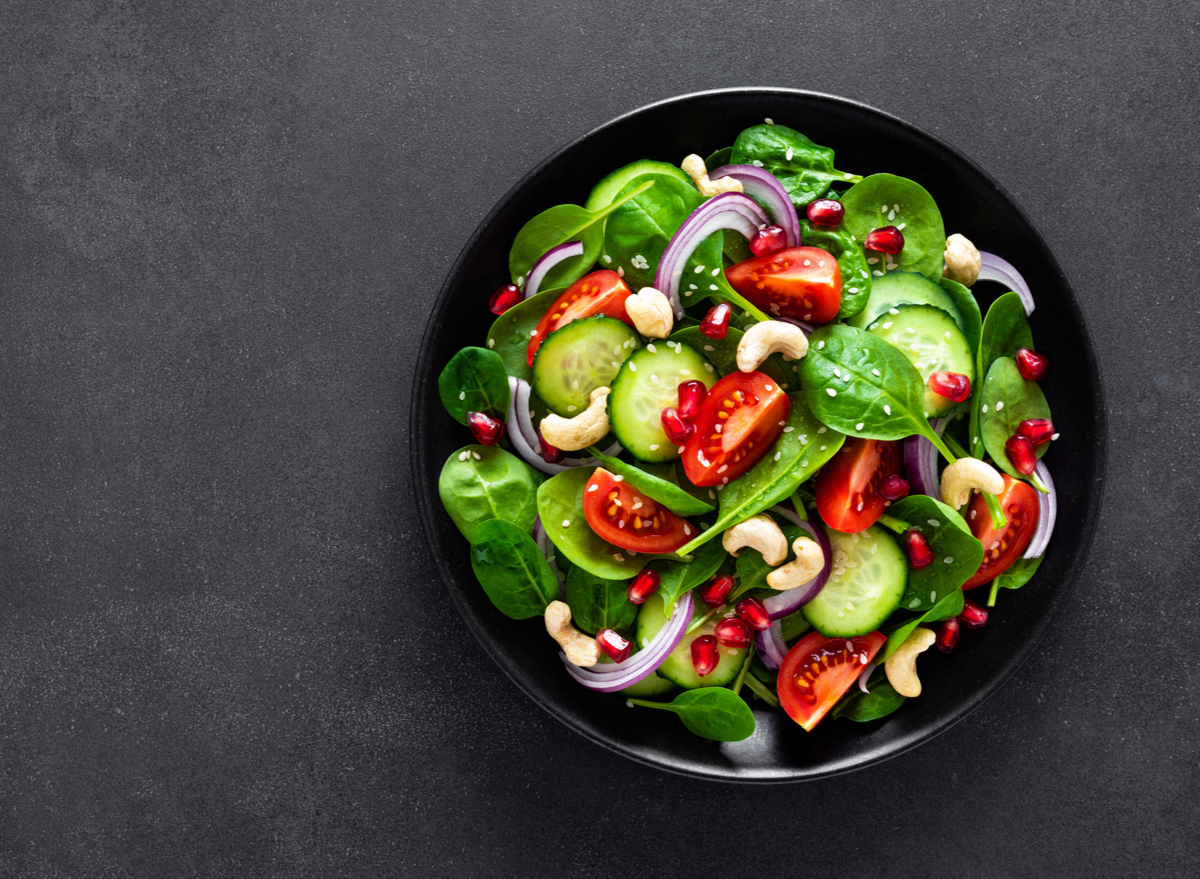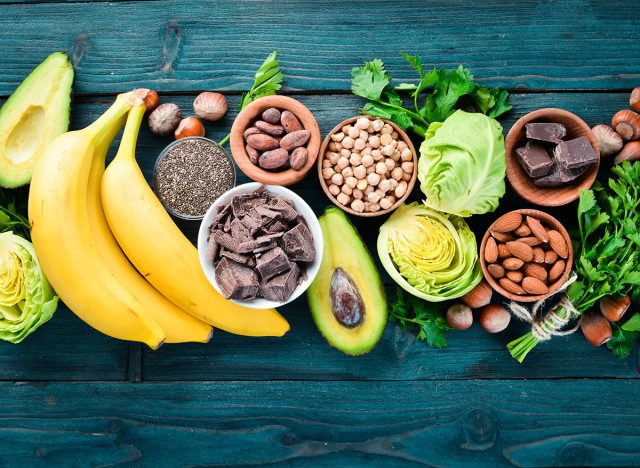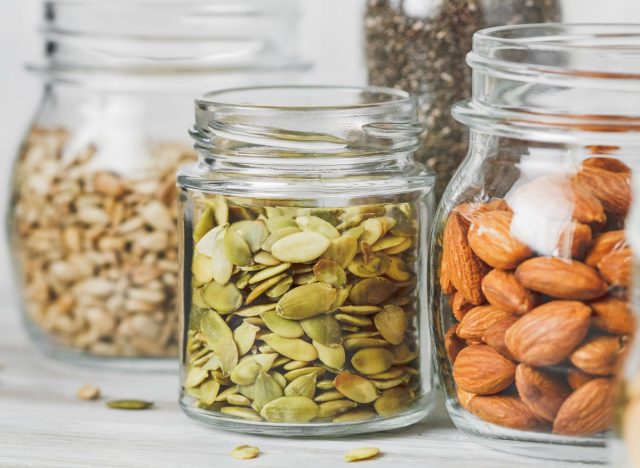Could Nuts & Spinach Be Your Ticket to a Younger Brain?

Can what you eat really keep your brain young? Researchers from the Australian National University think so. A March 2023 study published in the European Journal of Nutrition found that eating high amounts of magnesium-rich foods reduced brain aging by one year in healthy adults over the age of 55.
In this study, 6,001 cognitively healthy adults ages 40–73 completed five food recall questionnaires over 16 months to evaluate their magnesium intake. Researchers found that those who ate 550 milligrams of magnesium each day had a brain aged one year younger by age 55 than those who ate only 350 milligrams of magnesium per day.
Based on the study results, researchers estimate that increasing magnesium intake by 41% could lead to significantly improved brain health, preserving cognitive function and reducing the risk of or prolonging the onset of dementia later in life.

“Our diet can have a profound impact on many factors of our health, including our brain health,” says Lauren Manaker, MS, RDN, registered dietitian and author of The First Time Mom’s Pregnancy Cookbook and Fueling Male Fertility. “Magnesium plays a role in nerve transmission and also stimulates GABA levels in the brain as one way it plays a role in brain function,” adds Manaker.
So, should you just pop a magnesium supplement and expect better brain health? Experts don’t think so.
“One factor that needs to be considered is that the magnesium intake assessed was based on dietary intake and not magnesium from supplements,” explains Manaker.
This is important since magnesium-rich foods are also high in many other essential nutrients and antioxidants that could have a synergistic effect, working together to protect the brain. Pumpkin seeds, almonds, chia seeds, boiled spinach, swiss chard, soy milk, roasted cashews, shredded wheat cereals, and peanut butter are all good sources of magnesium.

The recommended dietary allowance (RDA) for magnesium varies by age and gender, with males ages 19–30 years old needing at least 400 milligrams per day and 420 milligrams per day after age 31. Meanwhile, females ages 19–30 years old need at least 310 milligrams of magnesium per day, jumping to 320 milligrams per day after the age of 31.
The brain-boosting benefits of magnesium came from eating 50% more than the RDA. This begs the question if it’s possible to eat too much magnesium?
Too much magnesium from food isn’t an issue in healthy adults, as the kidneys are easily able to excrete any excess amounts. But the same can’t be said about supplements.
“Excessive intake of supplemental magnesium, especially if it is taken in certain forms, may result in some unsavory side effects, including diarrhea and gastrointestinal distress,” says Manaker.
While this study focused on magnesium’s effects on improved brain health, other nutrients have had similar findings. Lutein supports visual and cognitive function from childhood into old age, per a July 2019 review in Current Developments in Nutrition.
“Lutein is an antioxidant-rich carotenoid found in dark green leafy vegetables, corn, eggs, and avocados and may offer cognitive benefits across the lifecycle,” explains Manaker.
Dark green leafy vegetables, like Swiss chard and spinach, are good sources of both magnesium and lutein.









